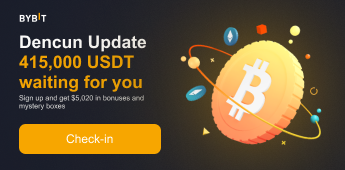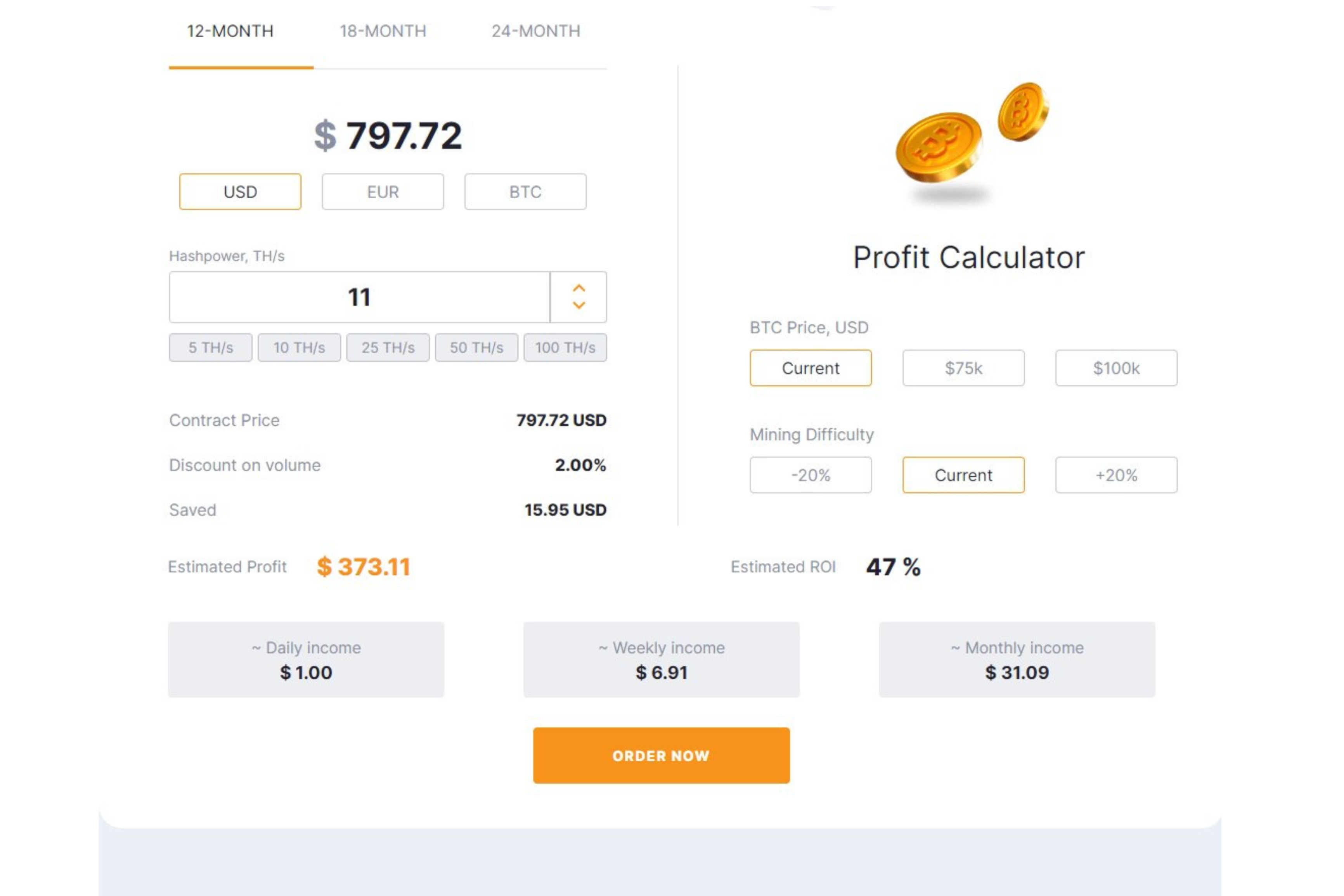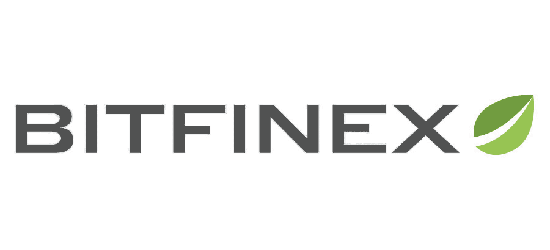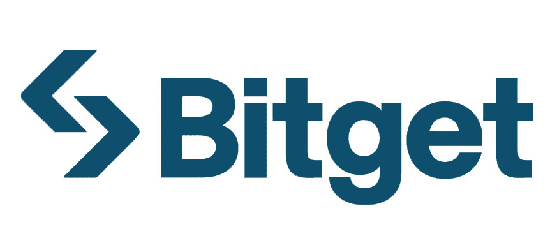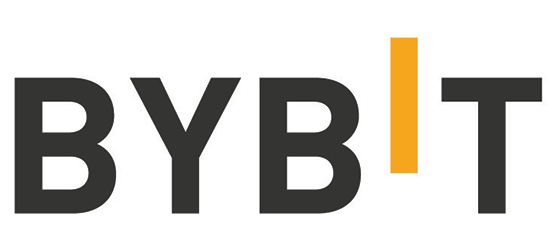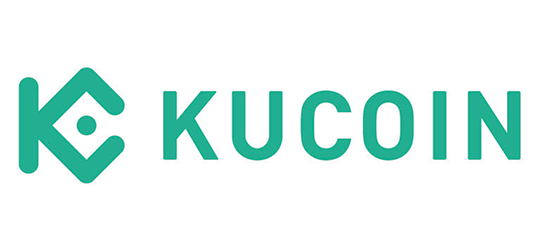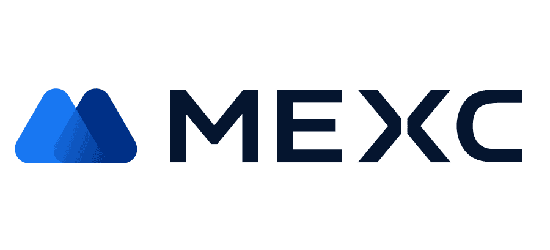
What Is Cloud Mining, How Does It Work and The Best Services
Probably many crypto enthusiasts have wondered, "If only there was a way to easily mine cryptocurrency with no need to buy expensive rigs". Well, there is a way to do it. In this article we will explore such a phenomenon as cloud mining, whether it is actually an ideal alternative to mining, whether it is a scam, and also take a look at a few sites and companies that provide cloud mining services.
What Is Cloud Mining
Cloud mining is a form of crypto mining that does not require the user to buy and maintain personal mining rigs, but rather to rent computing power remotely over the Internet. In other words, there is no need for them to have mining equipment in their home or office. Instead, the user signs a deal with a cloud mining company and pays it to use their computing resources.
This method is much simpler than traditional mining. It does not require the miner to have special knowledge, equipment and additional spending. All they have to do is join the mining farms remotely and start getting their share of the rewards. That's why cloud mining is becoming popular among beginners, especially when traditional mining is getting more complicated and expensive every year.
Types of Cloud Mining
Before we break down how cloud mining works, it's important to focus on its types to see the full picture and figure out what's best for you.
- Hosted Mining: You rent a mining rig from a service provider. The provider covers the maintenance, electricity and cooling costs of the equipment. You pay a one-time fee for setup and regular maintenance.
- Virtual Hosted Mining: You create a virtual private server (VPS) and install the mining software. It's a little more complicated than traditional hosted mining, but you have more control over the process.
- Leased Hashing Power: Instead of renting a specific mining rig, you're renting the processing power needed to solve crypto tasks. Meaning, you pay for a certain amount of hashing power for a certain period of time. This is a common type of cloud mining contract.
- Hashrate Trading: You buy and sell hashrate on specific platforms depending on market supply and demand. This provides flexibility but requires a close monitoring of market conditions.
- Lifetime Contracts and Term Contracts: This is a simple classification of cloud mining contracts. The first type of contract remains in use as long as the process is profitable. It is the most appealing, but comes with a higher initial cost. The second type of contract has a fixed term (e.g. one year or five years).
- Fixed and Variable Returns: Another classification of cloud mining contracts. Some contracts offer fixed profits, while others generate profits that depend on market conditions and the complexity of mining.
- Mining Pools: Mining pools involve combining computing resources with other users to increase the chances of successfully mining a block. Rewards are distributed among participants based on their contributed hashing power.
How Does Cloud Mining Work
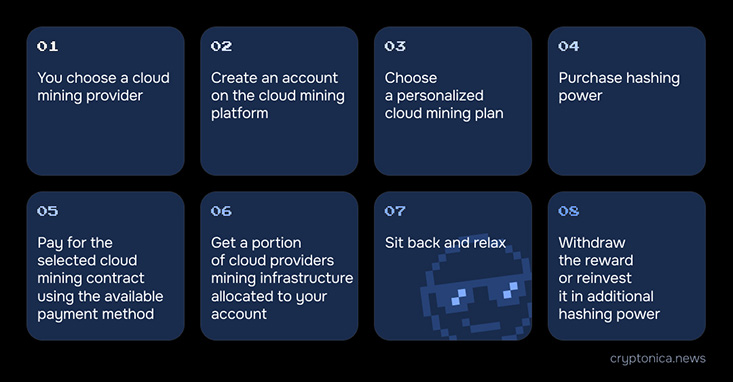
Now that we figured out the types of cloud mining, let's take a closer look at how it works. As we said earlier, the essence of cloud mining is to rent computing power in a remote data center to participate in cryptocurrency mining without having to own and maintain actual mining equipment. And here's how it works:
- You choose a cloud mining provider. This is the first and important step, which involves a deep analysis of providers by criteria such as reputation, reviews, history of its work, reviews, cost of services and other things that help you find a provider that is right for you.
- Next, you need to create an account on the cloud mining platform. This can be a cloud mining website or even a cloud mining app. But in any case, registration usually requires you to provide an email address, a password, and all necessary verification procedures.
- Any cloud mining service offers different plans or contracts. The next step is for you to choose a personalized cloud mining plan. It must fit your budget and goals. Plans may vary in hashing power, contract duration, and price. We covered this above by describing the types of cloud mining.
- Once you have chosen your mining plan, you need to purchase hashing power. Its amount depends on your individual plan. Hashing power is needed to perform complex math tasks and validate transactions on the blockchain.
- Pay for the selected cloud mining contract using the available payment method. Often payment is made upfront for the entire contract term.
- Once the payment is processed, the cloud mining provider allocates a portion of its mining infrastructure to your account. This may involve virtual mining machines or a share of the overall hashing power of the provider's mining operation. Again, it all depends on the type of cloud mining you choose.
- Sit back and relax. A cloud mining provider handles the mining process, crypto solutions, and transaction confirmation on your behalf. As a cloud mining participant, you don't have to worry about equipment maintenance, power and cooling costs. All you have to do is monitor the cryptocurrency mining process on the platform. Once the provider has mined the cryptocurrency, you get a share of the reward proportional to the hashing power allocated to you.
- You can withdraw the reward or reinvest it in additional hashing power. This can potentially increase future mining revenues.

Benefits and Risks of Cloud Mining
The whole process of cloud mining may seem rosy. If it was true, we would be swimming in a digital ocean of mined wealth by now. However, there are actually pitfalls that have made cloud mining one of the major forms of fraud in the crypto industry. Let's take a closer look at the benefits and risks of cloud mining, which will help you decide if this type of mining is best for you.
Benefits of Cloud Mining
The first thing that pops into mind when it comes to the benefits of cloud mining is convenience. You don't have to puzzle over whether ASIC, CPU or GPU is better or what they even are. There is no need to buy expensive equipment, especially if you are just starting out in the cryptocurrency mining industry. Just imagine that you have spent a lot of money to buy and maintain the equipment, and it can't pay off for several years due to various factors such as market conditions, increasing competition and the complexity of cryptocurrency mining. A cloud miner takes care of the infrastructure. And it's a good start to understand the nature of mining and whether it's right for you while spending less money and effort.
Affordability is another appealing factor. Cloud mining is beneficial in that it lowers the threshold of entry for those who are interested in mining cryptocurrency, but do not have the expertise or capital to invest in their own mining equipment and maintenance. The affordability of cloud mining is seen in its remoteness. Users can mine cryptocurrency by simply having access to the internet.
Speaking of costs, it is worth noting that there is no charge for electricity and cooling. This can be advantageous for those living in countries where electricity is expensive or where it is difficult to maintain a suitable cooling infrastructure. Cloud mining offers opportunities for passive income, as users can earn rewards without having to manage the mining process.
Another non-obvious benefit of cloud mining is that it's a great way to diversify your portfolio. Not only Bitcoin but also altcoin cloud mining is possible.
Risks of Cloud Mining
Lots of people in the crypto industry refer to cloud mining and scam as synonyms. 90% of providers offer unrealistic returns on investment. They offer big returns with minimal risks, which does not correspond to reality. Cloud mining has also become the foundation for an easy Ponzi scheme. Another red flag is that many provider companies do not disclose information about their activities: neither the location of the center, nor the amount of energy used, nor what equipment is used to mine cryptocurrency.
Many companies have been found to have defrauded customers and used their investments for their own personal purposes. But the high level of fraud in the cloud mining industry is just half the battle. If provider companies are not fraudulent in any way, they face the problem of operating at a loss due to high costs of electricity and equipment that exceed the potential profits from crypto mining. And in that case, customers are unlikely to make a profit.
A prime example would be Genesis' division, Genesis Mining. Many users bought into the less-than-transparent terms of lifetime contracts. This contract offered an initial investment of $150. It brought some profit to users in the first month, but the Bitcoin mining activity did not help the company cover even the electricity costs. As a result, South Carolina authorities issued a cease-and-desist order to the company, deeming the proposed mining contracts illegal. Unfortunately, the site is still operating and attracting new users. And in fact, there are a lot of such working sites recognized as scams. Hashflare, Eobot, Minex, CloudHashing are among such sites.
Not to forget the ever-increasing competition and complexity of crypto mining. Any type of mining becomes unprofitable, especially for individuals. Such players have to leave the market or join larger ones, which is similar to a full shutdown, since in this case the amount of distributed reward becomes negligible.
Another discouraging factor is the dependence on the provider. The service may have technical issues, which may lead to the closure of the company and then users will lose their invested funds. And the user generally has limited influence over the mining process.
But even if the cloud mining company has managed to avoid all the above risks, the user may come across a different and non-obvious problem. It lies in the hidden terms of the contract. Providers offer unique customized plans that a user can choose to participate in mining, but quite often service companies provide a hidden or unclear structure of additional fees, which can greatly affect the final return on investment in cloud mining.
So, cloud mining isn’t a cloud nine opportunity for easy passive profit. Still, this activity should not be written off. Cloud mining can be a great way to diversify your portfolio. Therefore, in the next paragraph, we should look at legitimate cloud mining companies and services.
Best Cloud Mining Services
Before we dive into exploring cloud mining companies that seem legitimate, let's answer the question "What cryptos can be mined?" Proof-of-Work consensus-based coins can be mined. This is not only Bitcoin, but also hundreds of other altcoins. However, Dogecoin, Ethereum Classic, Monero, Litecoin, ZCash, Ravencoin, AEON and Kaspa are among the popular ones.
Top 5 Legit Cloud Mining Sites
So, here is our small cloud mining list:
NiceHash

| Pros | Cons |
| The starting amount for mining is 0.001 BTC | The platform only accepts Bitcoin payments |
| Enables anyone to sell hashpower for mining | There is a built-in cryptocurrency exchange, but it covers a small number of tokens |
| Supports multiple algorithms and pools for mining | |
| Decades of experience in the industry | |
| User-friendly interface, suitable for beginners | |
| QuickMiner and EasyMining features make mining easy |
It is an all-in-one platform for cloud mining of cryptocurrencies and selling hashrates and one of the best cloud mining sites. The user can remotely choose not only which cryptocurrency to mine, but also whether to use CPU, GPU, or ASIC. This platform is mainly focused on mining Bitcoin, but it is possible to buy packages to mine other cryptocurrencies, such as Ethereum, Dogecoin, Litecoin.
This company has decades of experience in the mining market, becoming the largest platform worldwide. NiceHash has more than 2.5 million users in 190 countries. This provider has already paid out 181,000 BTC to users during its entire existence.
The platform offers different types of contracts, some of which have a duration of only a few hours. In the hashrate marketplace, users can sell computing power to each other. NiceHash operates as a website, phone, and computer app and employs enhanced security measures such as SSL encryption, two-factor authentication and email alerts of all activity on a user's account.
ECOS

| Pros | Cons |
| User-friendly interface | The fee system is not completely clear |
| 250 + tradable assets | No support of trading bots |
| Low entry threshold | Support for only BTC mining |
Ecos was founded in 2017. It is one of the legit cloud mining companies as it is the first cloud mining provider with legal status. More than 250 thousand people use this platform. Ecos allows you to mine only Bitcoin, but has a built-in exchange with support for 250+ tokens for trading. The platform is appealing as it offers various types of cloud mining contracts. Ecos is perfect for beginners, as it has a convenient set of tools, simple functionality and fast withdrawal of funds. There is both a web version of the platform and a mobile application.
KuCoin

| Pros | Cons |
| Enhanced security and verification |
Ill-conceived system for selling contracts |
| Steady income | |
| Support of multiple tokens | |
| User-friendly interface |
First of all, it is one of the largest cryptocurrency exchange that has long-established market reputation among users. Cloud mining is one of its functions. The exchange plans to develop its cloud mining service provider feature to become the largest PoW mining pool in the world. KuCoin offers users accurate hash rate data and high revenue from mining cryptocurrencies such as Bitcoin and Litecoin.
Binance

| Pros | Cons |
| Easy-to-use interface | No support for automated trading bots |
| No hidden fees or other charges | Small number of supported coins |
| Robust security system |
Another cryptocurrency exchange on our list that offers a cloud mining feature. Binance cloud mining pool supports mining Bitcoin, Ripple, Bitcoin Cash, Litecoin, and other cryptocurrencies through its website or mobile app. The platform is focused on beginners. Each mining session ends after 8 hours and the user receives their reward. The platform also allows you to increase your mining power through a customer loyalty program.
Hashing24

| Pros | Cons |
| Daily payments, weekly promotions and auctions | Only Bitcoin can be mined |
| Stable hash power | Non-transparent fee-for-service system |
| Free demo to simulate profits | |
| 24/7 customer support |
Hashing24 is one of the most popular Bitcoin cloud mining services. The platform has been on the market since 2015. The service provides access to data centers in the real world and can automatically fund your balance with mined coins. The site provides everyone with a calculator function to help determine the right type of contract for mining. Hashing24 is favored by many people not only because of its feature of paying out rewards every day, but also for its regular promotions and auctions. Throughout its existence, the company has been able to mine 1,000 coins.
Earnings on cloud mining on the example of contract plans Hashing24:
Source and Copyright © Hashing24
Top 3 Crypto Cloud Mining Apps
Cloud mining is also available for mobile devices. There are various applications available in the app store for this purpose. Such cloud mining may seem more convenient because of its interface, the ability to monitor the mining process directly from the mobile device. In addition, cloud mining on a phone can also utilize the computing resources of the user's device itself. However, due to the limited computing power of mobile devices, they are often less efficient compared to the more powerful servers used by cloud mining sites. Mobile apps can provide additional security measures such as two-factor authentication, password protection, and other features specific to mobile apps. So, here is our small selection of cloud mining mobile apps:
StormGain

| Pros | Cons |
| User-friendly interface | There are issues with transparency of work |
| Multifunctional platform | Only Bitcoin can be mined |
| Availability of various bonuses |
This is a feature-rich software for Bitcoin mining and more, which has both a website and a mobile app. This cloud miner app also has powerful charting tools to track trends and price movements. It also supports such cryptos as Bitcoin Cash and Litecoin. Users are attracted by the free Bitcoin mining and daily payouts. Mining is for free. As the developers explain themselves, this is to ensure that the user has more funds for various trading operations within the platform itself.
Salad

| Pros | Cons |
| User-friendly interface | It takes a rather big percentage of what you actually mine |
| Big ecosystem with unique features | Some services are not available in some countries |
This is a unique cloud mining application that exists in the large Salad Mining ecosystem. It has an " Autostart" mode that allows you to maximize your mining performance and profit. The app allows you to activate and deactivate CPU and GPU with % utilization. A special feature of Salad is the assignment of payouts. Users can spend their rewards on charity, buying gift cards, receiving Paypal rewards, etc. Ethereum Classic, Autolykos2, Octopus, RavenCoin, Monero, Zhash, BeamHash, ZelHash, x16rv2, Neoscrypt and KHeavyHash can be mined in the Salad ecosystem. The new feature, SaladCloud, offers not only cloud mining, but also allows the deployment of any task in the user market: P2P bandwidth sharing, AI inference training, applied edge computing etc.
Hashshiny

| Pros | Cons |
| User-friendly interface | Non-transparent mining system |
| It’s a free app | High fees |
It is a free cloud mining app for Bitcoin and other altcoins such as Ethereum, Litecoin, Dash, Zcash and Decred. You only need a phone or tablet to mine coins. The developers claim that an average user can earn up to 0.005 BTC daily, depending on the performance of the device and the complexity of the network. Users can also utilize Hashshiny's 30 days refund policy if their investments don't seem profitable. Hashshiny has been on the market since 2017.
Disclaimer: Although the above sites and apps appeared on our list, we do not guarantee their 100% legitimacy. Our goal was to inform you about existing cloud mining providers. The investment decision is up to you. Don't forget to do your own research.
Conclusion
As the cryptocurrency industry continues to evolve, cloud mining remains a topic of interest and debate. Its future trajectory will likely be influenced by advancements in technology, regulatory developments, and the overall maturation of the crypto market. While cloud mining presents an alternative avenue for individuals to participate in mining, prudence and careful consideration of risks are paramount for those considering venturing into this space.
FAQ
Is cloud mining profitable?
The profitability of cloud mining depends on various factors and before deciding to invest in cloud mining, you should carefully consider aspects such as the price of cryptocurrency, difficulty of mining, service fees, market conditions, reputation of the provider, flexibility and potential risks. But comparing with traditional mining, more miners are opting for cloud mining for several reasons, such as convenience, ease of use and cheaper maintenance.
Is cloud mining worth it?
Determining whether cloud mining is worth it depends on various factors, and this decision should be made after careful consideration of your goals, risk tolerance, and market conditions. It is also important to do your own thorough research, do a cost analysis, profitability projections, consider alternative mining methods, and evaluate your risk tolerance.
What is the best site for cloud mining?
To determine the best cloud mining site, you need to pay attention to factors such as reputation, transparency, security measures, user reviews and user trust. Considering all the benefits and risks, as well as our article, research projects like Hashing24, NiceHash, ECOS, for example.
Is cloud mining legit?
To understand the legitimacy of a particular cloud mining service, pay attention to the provider's reputation and reviews, as well as its experience, history, transparency of activities, and compliance with legislation. Taking all this into account, as well as our article, you can examine such services as Hashing24, NiceHash, ECOS.
What are the best crypto cloud mining apps for Android?
Mobile cloud mining should be treated much more carefully than websites or other cloud mining platforms, due to the resource-intensive nature of mining and the potential strain it can place on mobile devices. Additionally, various app stores may have restrictions or policies that prohibit cryptocurrency mining apps. Considering all the risks and our article, research projects like StormGain, Salad, for example.
What is the world's best cloud mining platform?
In order to determine the best cloud mining platform, you need to do your own research as this can depend on a variety of factors including individual preferences, investment goals, and market conditions. With all this in mind, as well as our article, check out projects such as NiceHash, Hashing24. Remember that investing in cloud mining involves risk, and past performance is not indicative of future results.




